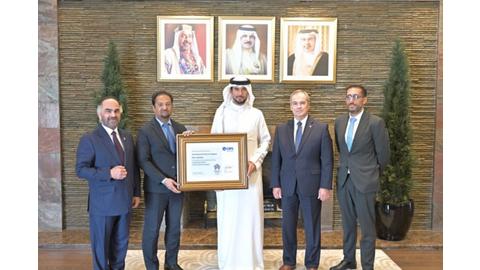Insurance scheme set to boost private healthcare

NATIONAL Health Insurance Programme Sehati, set to be launched this year, will enhance Bahrain’s competitiveness and boost the private healthcare sector, top medics have said.
It could even result in patient exodus to private facilities, they said, calling on potential businesses to invest in the healthcare segment.
Health Minister Faeqa Al Saleh had earlier announced that the first phase of the much-awaited insurance scheme will be rolled out in the second quarter of this year.
Bahrain offers free healthcare to all citizens while a small fee is charged for residents in government facilities. With the launch of Sehati, citizens and residents will get health coverage with two choices - a standard insurance with government supplying primary and secondary healthcare with free services, and a premium option of receiving treatment in the private sector with around 40 per cent paid by the government.
“Bahrain covers infectious, non-infectious and chronic diseases in these (insurance) packages, and I think it’s a great opportunity to involve the private sector as a provider,” said National Health Regulatory Authority (NHRA) chief executive Dr Maryam Al Jalahma.
“Perhaps, 70 per cent of the population now visits the government sector, but with this opportunity, I believe the private sector will flourish in Bahrain.
“We now have 831 healthcare facilities, including 21 hospitals, 301 health and medical centres, laboratories, radiology centres and support services. I believe there is an opportunity to invest in these as well.”
From a clinical standpoint, BDF Hospital microbiologist Dr Manaf Al Qahtani said mandatory insurance would provide Bahrain with a high-quality, flexible and responsive healthcare system.
“It could also free up some resources for innovation in research and training,” he said. “Another aspect is that it will provide individuals with freedom of choice and boost competition among healthcare workers in terms of providing services.”
The doctors were speaking at an American Chamber of Commerce session that featured Bahrain as a case study on the topic of Building Resilient Healthcare Systems in the Gulf (AmCham).
Clinical trials and research were another option for investors, said Dr Al Jalahma.
“We have brought out more than 32 publications in Bahrain over the last two and a half years, which was never done before.
“We did three randomised trials in Bahrain, again the first ever – all because we have the expertise, we have two major medical schools, the Royal College for Surgeons in Ireland and the Arabian Gulf University.
“Bahrain also initiated the first National Genome Programme, which is more of personalised medicine.
“These have changed Bahrain in terms of education and science, and I see great investment opportunities.
“In manufacturing and medicine, there are options for therapeutics, preventive and personalised medicine and the private sector might be willing to partner with Bahrain in these fields.”
Dr Al Jalahma underlined the flexible approach adopted by the NHRA, which she said was highlighted amidst the pandemic.
She cited the authorisation of Covid-19 vaccines for emergency use, even before they were approved by the World Health Organisation and clinical trials.
Source: https://www.gdnonline.com/Home/Details/1072137


